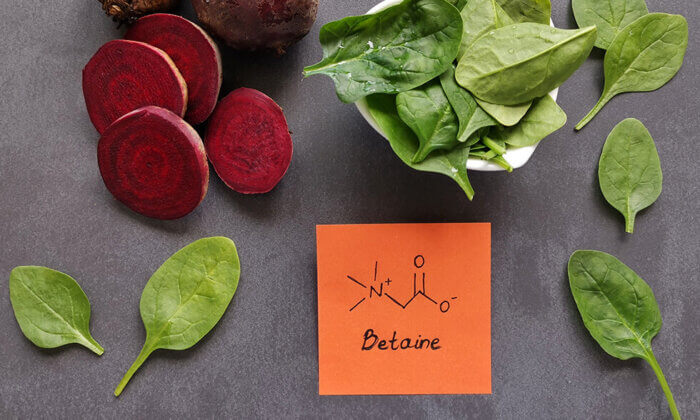How to Actually Re-Tool Your Obsolete Multivitamin
Are multivitamins a scam? Maybe not anymore...
| | Reading Time: 6 minutes
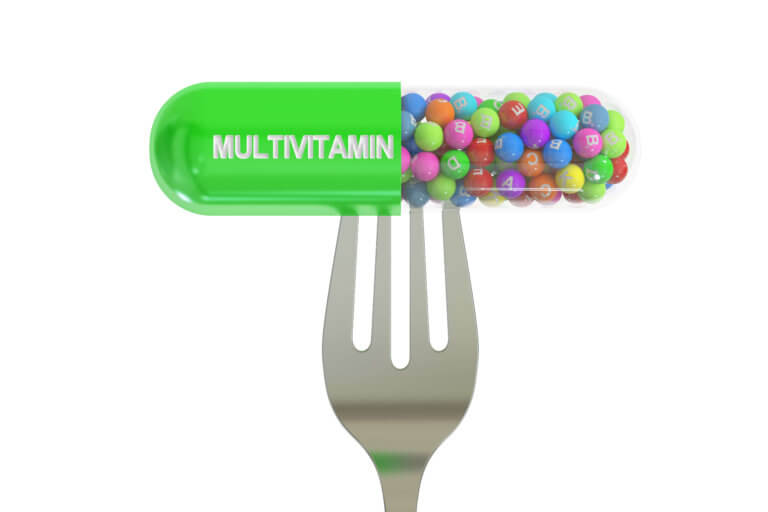
When I opened The California Clinic of Natural Medicine in San Diego in 1985, Californians were socially progressive, but the California Medical Association members were still entrenched conservatives. For example, medical doctors called a multivitamin “expensive pee.”
They were wrong, but we didn’t quite yet have the evidence to prove it. Back then, that kind of one-a-day multi usually passed undigested through the intestinal tract. None of the vitamins actually made it into the kidneys.
One of my colleagues, an RN and licensed acupuncturist, assisted endoscopies at Scripps Memorial outpatient clinic in La Jolla for a senior gastroenterologist. One morning, she called my office and in an excited voice said that Dr. Noble told her to get me on the speaker phone right away. In the back ground, I heard him counting: “252, 276, 295, 311!”
“What’s he doing?” I asked.
“He’s counting undigested pills,” she said. “Dr. Noble insisted that you get this in real-time.”
My good humored but conventional MD colleague couldn’t wait to confirm my point: hard coated vitamin pills were not expensive pee, but costly poop. He proved it while doing colonoscopies.
“A lot has changed since 1985.”
However, from his clinical view, unless specific vitamins were needed to cure a deficiency, like vitamin C for scurvy, a multivitamin was a waste of money. What he didn’t say at the time of the phone call was that this patient took a drugstore brand one-a-day multivitamin. Later the nurse told me that not all of the pills in that patient’s gut were one-a-day multivitamins. Most, she said, were prescription drugs.
What he didn’t know is that a new breed of nutritional supplement companies were hard a work solving the problem of absorbability. A lot has changed since 1985.
Does Your Multivitamin Contain Too Little or Too Much?
It’s impossible to pack every nutrient you need in one capsule. Not even Nature does it. That’s why we need to eat a variety of foods. But, new generation multivitamins try to cover daily nutrient needs. A comprehensive multivitamin and mineral supplements can contain more than 30 ingredients. To get inclusive nutritional support, you have to take six capsules daily.
Many assert that food trumps supplements. Theoretically, that’s true. But, the modern diet – even a plant-based, organic one – is limited in variety. Soils are deficient in trace minerals. The U.S. Department of Agriculture found less calcium, phosphorus, iron, riboflavin, and vitamin C in soil.
“It’s impossible to pack every nutrient you need in one capsule. Not even Nature does it.”
The transfer of nutrients from soil to people comes by way of plants and the animals that eat them. Soils deficient in iron and zinc cause retention of cadmium, a toxic metal pollutant that finds it’s way into dirt. Cadmium is a non-essential, non-metabolic substance that causes health problems even in low dosages. In my patients, I find that cadmium is the second most common toxic metal after arsenic.
Modern people get more than enough calories from foods, sugary drinks, and snacks. Unless extreme vegans, they also get enough protein. But, we also require trace minerals, cofactor nutrients, antioxidants, and other nutritional substances like polyphenols that are deficient in commercially produced foods.
A full-spectrum, absorbable multivitamin makes sense. But taking less works too.
A Basic Daily Multivitamin
If you eat a healthy plant-based diet, get enough calories from complex carbohydrates, eat high-quality protein, and consume healthy fats and oils; take a multiple with the main nutrients at optimal doses. For example, common nutritional deficiencies include iron, magnesium, trace minerals like zinc and boron, omega-3 fatty acids, and vitamins B12, K2, D3, and E.
Ritual is a new company offering a daily multiple with fewer choices but containing high-quality ingredients designed for optimal absorption. For example, Ritual puts oil-soluble nutrients like vitamin D3 and E into tiny beads containing oil for better bioavailability. The marketing story behind Ritual is of a product obsessively researched by experts, so you just get what you need.
What’s missing with this approach? Typically, designer supplements are in small doses. If you require therapeutic levels, you have to take more. In this case, designer supplements get expensive.
Genomic Supplements
Imagine a multivitamin designed just for you. One that takes in all of your genetic secrets, that goes beyond even the most comprehensive daily supplement. Several companies offer this service. But matching your unique genetic profile to a personalized nutritional supplement is not easy. I’ve tried several nutritional genomic companies, but haven’t yet found one that delivers to my standards. Tailored nutrition is coming, but not yet. Though this field offers exciting promise, nutritional science has yet to crack the code of perfect individualized supplementation.
“Imagine a multivitamin designed just for you. One that takes in all of your genetic secrets, that goes beyond even the most comprehensive daily supplement.”
However, we know a lot about diet and certain genetic mutations. Since about 40% of people have MTHFR gene mutations that inhibit cellular methylation, a common cause of fatigue and associated to increased cardiovascular disease risk, taking a multivitamin that addresses methylation pathways make sense. PureGenomics Multivitamin is a one capsule daily choice that focuses on optimal methylation.
Are You a Good Candidate for a Daily Supplement?
If you are between 20 and 50, eat a plant-based diet, are healthy, exercise regularly, not trying to conceive, and don’t need to lose weight, you may not need a multivitamin and mineral supplement.
If you are on a medically restricted diet, eat a vegan diet, or a woman planning to conceive or nursing an infant, consider a daily supplement. Other groups that would benefit from a multivitamin and mineral are the elderly, those on a restricted diet, those recovering from an illness or promoting wound or bone healing. High-performance athletes may benefit from a daily supplement.
What type of multivitamin should you take?
- All women from their late teens to mid-thirties – Take a prenatal (It may sound strange, but this will not affect your fertility. Prenatals have the right nutritional make-up for your current needs regardless of reproductive status).
- Healthy people over 65 – Take a comprehensive multiple with polyphenols and geroprotectant compounds.
- Everyone else – Take a comprehensive multivitamin and mineral with polyphenols.
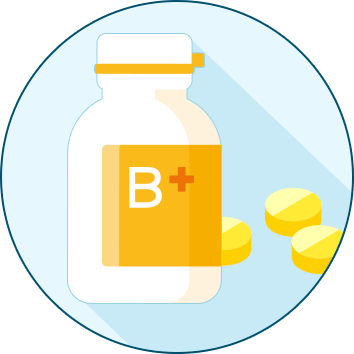
Geroprotentants are nutrients, like resveratrol, that activate longevity genes. Others turn on or off liver detoxification pathways like luteolin and N-acetylcyteine (NAC). Key nutrients like L-5-Methylfolate (5-MTHF) improve genetic defects in cell metabolism. Adaptogens like Rhodiola power up ATP levels producing more energy. Curcumine dampens inflammation. Myricetin acts as a neuroprotectant helping prevent Alzheimer’s disease.
How Can I Tell if My Multi is Real?
When choosing a daily multivitamin, read labels and check out the company’s website. Look for the following criteria:
- Bio-identical – The molecular makeup of a nutritional supplement is the same as found in nature.
- Pharmaceutical Grade – Meets pharmaceutical manufacturing standards of 99% purity with no fillers, binders, excipients, dyes, or other substances.
- Bio-available – The percentage of a nutraceuticals absorbed by the body tend low. Choose companies that use manufacturing techniques to enhanced bioavailability.
- Hypoallergenic – Do not produce allergic reactions.
 Look for vegetarian capsules or tablets, non-GMO raw materials, hypoallergenic, gluten free, and free of heavy metals. The U.S. government requires that nutritional supplements contain dietary ingredients, and not drugs. All supplements are required to adhere to current good manufacturing practice (cGMP).
Look for vegetarian capsules or tablets, non-GMO raw materials, hypoallergenic, gluten free, and free of heavy metals. The U.S. government requires that nutritional supplements contain dietary ingredients, and not drugs. All supplements are required to adhere to current good manufacturing practice (cGMP).
California has additional guidelines for supplements. Even companies manufacturing in another state need to comply with Prop 65 and Title 17 regulations if they want to sell products in California.
Are Multivitamins for Me?
Nutritional supplements are a far cry from the early 1980s. Even the National Institutes of Health, Office of Dietary Supplements provides health information to the consumer and data bases on supplements for researchers. Thousands of blogs provide information about supplements.
To be healthy, think of your body as a whole with many different functions. That’s where a multivitamin is valuable. You need specific nutrients to impact individual body systems. New generation multivitamins address many of these needs. Putting it all together in one pill seems unimaginable. But, comprehensive state-of-the-art 21st Century multiple vitamins are here.
Dr. Williams’ Multivitamin Recommendations
Learn how to order supplements.
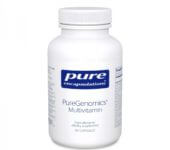 PureGenomics Multivitamin is a once-daily supplement. It is pharmaceutical grade and is non-GMO, vegetarian, and gluten free. For men and women over 18 years.
PureGenomics Multivitamin is a once-daily supplement. It is pharmaceutical grade and is non-GMO, vegetarian, and gluten free. For men and women over 18 years.
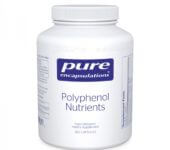 Polyphenol Nutrients is a broad-spectrum daily supplement for overall health providing enhanced cell protection. Non-GMO and gluten free. For men and women over 18 years. Take 1-2 capsules 2-3 times daily with meals.
Polyphenol Nutrients is a broad-spectrum daily supplement for overall health providing enhanced cell protection. Non-GMO and gluten free. For men and women over 18 years. Take 1-2 capsules 2-3 times daily with meals.
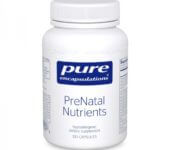 PreNatal Nutrients provide nutritional support for women of child-bearing age, during pregnancy, and after delivery when nursing. Non-GMO, vegetarian, hypoallergenic, gluten free. Take 1 capsule twice daily with meals.
PreNatal Nutrients provide nutritional support for women of child-bearing age, during pregnancy, and after delivery when nursing. Non-GMO, vegetarian, hypoallergenic, gluten free. Take 1 capsule twice daily with meals.


